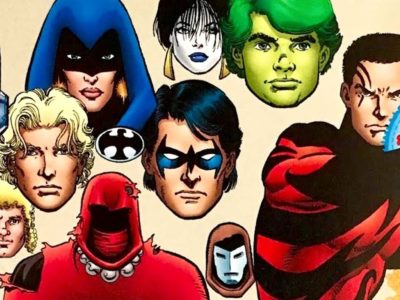
[ad_1]
The new series shows it’s a tragedy that everyone thinks Supergirl is just a female Superman. She’s not.
Warning: The following contains spoilers for Supergirl: Woman of Tomorrow by Tom King, Bilquis Evely, Matheus Lopes, and Clayton Cowles , on sale now from DC Comics.
Since Supergirl’s introduction in 1959, comic writers have struggled to separate her from Superman. Supergirl: Woman of Tomorrow set Kara Zor-El on a galaxy-spanning adventure to show that she’s not just the female version of Superman. Tom King’s definitive vision of Supergirl reminds us of the depth of loss that both haunts and empowers her—something uniquely different from her cousin.
Supergirl: Woman of Tomorrow is narrated by an alien girl named Ruthye who hired Supergirl to avenge her father’s death. The story ramped up as the two pursue the killer, Krem of the Yellow Hills, and the brigands he’s joined. As they hunt for Krem, they discover his atrocities on each planet he’s visited including full-scale, violent genocide. The journey echoed Supergirl’s own loss of her planet and her family. The visuals reinforce both whimsy and alienness of the landscapes and populace. The story’s aesthetic is not misplaced—it positions the reader in the same mindset as the narrator Ruthye and gives a foil to Supergirl’s persona while stripping away the uninvited layers planted by Kal-El’s reputation. Supergirl’s true nature is front and center in question and each incident reminds us that fans are as guilty as the rest of the universe for extrapolating the Last Son of Krypton’s characteristics upon her and assuming she is just the female Superman. She is not.
Ruthye noted the first and possibly most important distinction between Kara and Kal-El: “I knew nothing about her growing up on a planet with friends and relations and seeing all of it go to dust. I didn’t know that she had lost everything only to gain invulnerability.” Kal-El’s loss of his parents and home-planet Krypton was experienced before he was even aware, and he was given the Kents in their stead. Clark’s abilities came as part of growing up and he matured into them just as one matures into adulthood. They arrived through adolescence and so they became natural. Kara knew her parents and her homeworld and lost them all. Her abilities came as a replacement as those relationships were taken away. For Kara, those abilities are bittersweet; they were received in the wake of great sacrifice and sorrow.
King’s handling of Supergirl reminds readers that Kal-El is of Earth in a way that Kara is not. Ruthye later narrated that “But until that day, I never saw anyone so unafraid of death that they understood in their heart and belly a simple and perfect truth—there was no one alive stronger than they.” Whether Kal-El is stronger or Kara is can be left up to the internet forum discussions but for Kara, she knows that she has endured far more for the same powers her cousin has, and that has given her a strength he does not have.
Krem’s violence resurrected Kara’s painful loss. Ruthye tried to understand Kara’s seemingly stoicism initially. Early in their travels, Ruthye asks, “After the tragedy of your planet’s destruction . . . Did you too seek to avenge the death of your family?” to which Supergirl replied, after a moment of pause, “No, I didn’t.” Ruthye reflected, “I heard her response . . . I heard a whole life of regret.” Because of the intimacy that Kara has with the loss of her planet the heroic restraint is something far more challenging for her than it is for Kal-El. At times, Kara even suspended the anticipated “Super-Family” response and allowed a criminal to be executed by a mob. As they watched this, Ruthye pondered, “I know he surely deserved his fate. But I had some thought you’d save him.” Supergirl replied, “Did you?” This is very un-Superman behavior.
Later, the burning rage in Supergirl reached its peak. Fearful to release her rage where she could damage others, she flew into a star to scream. Ruthye narrated, “Every moment of every day, she suppressed the forces churning inside of her. All the energy of a dead world that strained against her many barriers, eternally demanding to be released. I believe this effort hurt her. I believe she lives her life in pain.” This is the difference. Kara is still tortured by the loss of her world in a way that Clark never will be nor never could. The series resurrected Kara’s fire wings, an ability from an early incarnation of Supergirl, to visually show us the fire that burns in her.
Kara’s childhood on Krypton makes the loss very different for her than Clark. As Ruthye reflects when they encounter aliens assuming she’s a weaker version of Superman: “They presumed her to be his soft underbelly . . . She was many things to many people. But she was never soft.” Beneath her calm exterior, there is a rage-fueled by pain. Supergirl: Woman of Tomorrow strips away that exterior to show us the bright yellow sun blazing inside her.
About The Author
[ad_2]





